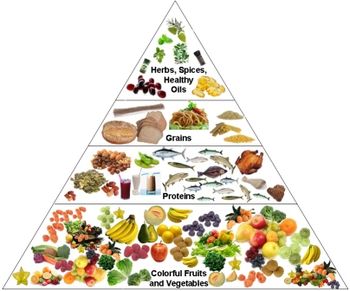
Many students don’t realize the potentially serious effects of an unbalanced diet.
Short-term effects of diets that lack basic nutrients, fruits and vegetables can result in decreased energy and focus and contribute to an unhealthy body weight. Serious, long-term effects include an increased risk of cardiovascular disease, osteoporosis and cancer.
“The first problems associated with heart disease start in the early twenties,” said Melissa Wdowik, the director of the Kendall Anderson Nutrition Center.
She explained that the arteries could begin to harden in college-age individuals who lack proper nutrition and that the typical college diet includes a lot of snacks and not very many planned meals.
“The main thing a college diet lacks are fruit and veggies,” Wdowik said.
Brittney Stuard, the Nutrition and Resources for Disables Students employment manager, attributes this trend to a lack of time, as well as cost.
“It is harder because they don’t have as much time and culinary knowledge,” Stuard said of college diets.
Tori Minovich, a senior health and exercise science major, agrees.
“I think the biggest thing for students is lack of money and time,” Minovich said.
Minovich said she believes many students just opt for what is cheap and convenient. She thinks that most students know how to eat healthy, but aren’t motivated to or don’t want to spend money on healthy food.
Stuard’s recommendation for students is to use the plate method, which divides the plate into several portions for each type of food. She advises that half the plate be filled with fruits and vegetables, one fourth with protein and one fourth with grains.
Stuard said that it is especially important to eat healthy when stressed because a poor diet can result in decreased focus, energy and immunity.
A healthy diet “can help you study better, have more energy and keep your mind focused,” Stuard said.
Wdowik recommends that students try to eat fruits and vegetables every day, if not with every meal. For example, she said students who eat at Spoons could simply get soup that has vegetables in it or add them to a sandwich.
She also recommended that students who live off campus go to the grocery store and buy convenient alternatives.
“Look for frozen foods that are convenient such as veggies and chicken,” Wdowik said.
She also wants students to understand that they don’t need to go on extreme diets and that she does not recommend participating in fad diets.
“Just change your eating habits,” Wdowik said.
For more information about nutrition, students can make an appointment at the Kendall Anderson Nutrition Center, which is located in the Gifford Building. CSU students receive a half off discount on all of their services. Students can make an appointment by visiting www.nutritioncenter.colostate.edu or calling (970) 491-8615.
Collegian Reporter Maddie Buxton can be reached at news@collegian.com.





